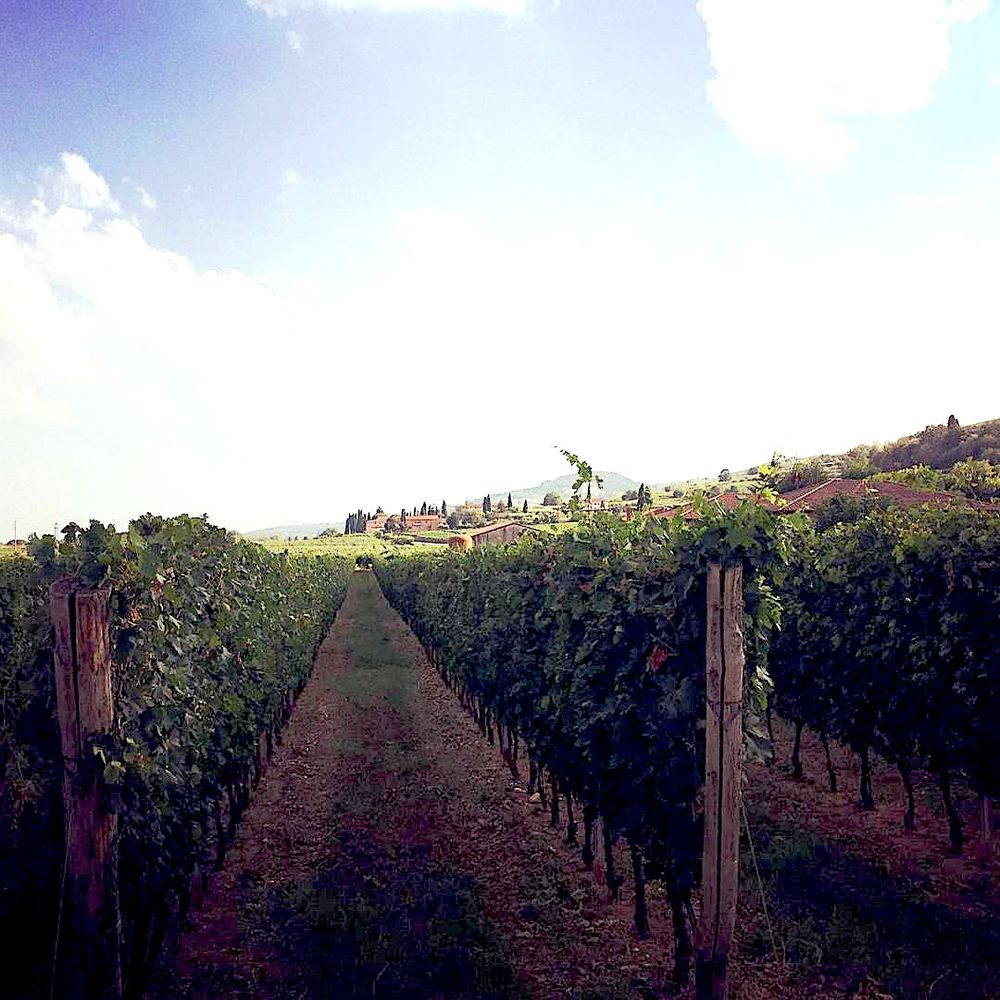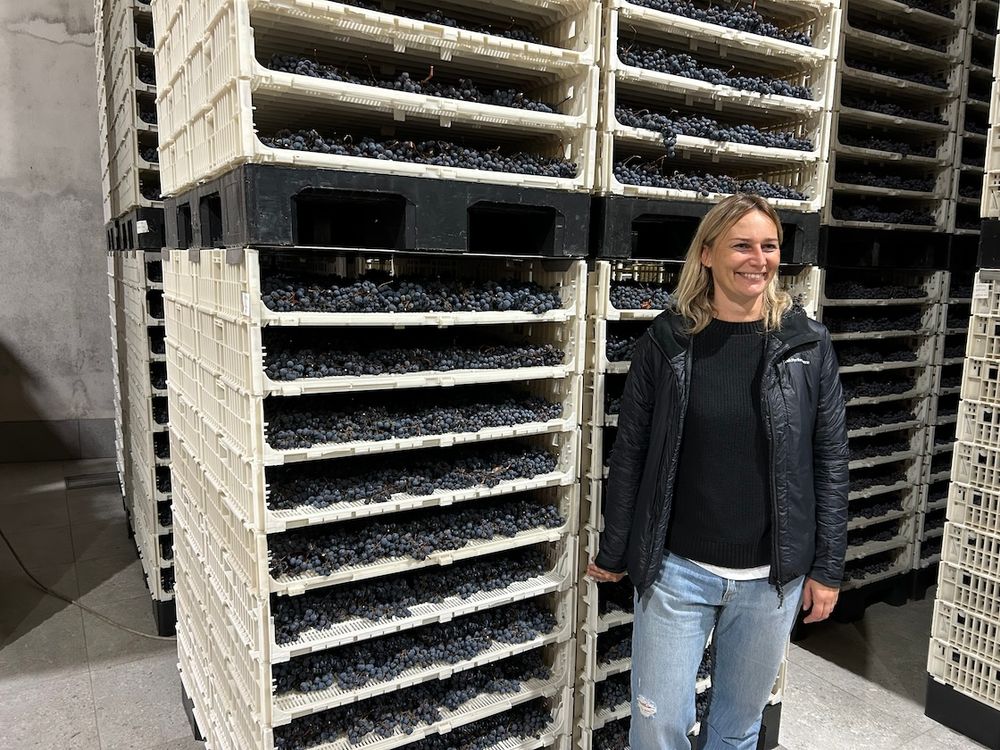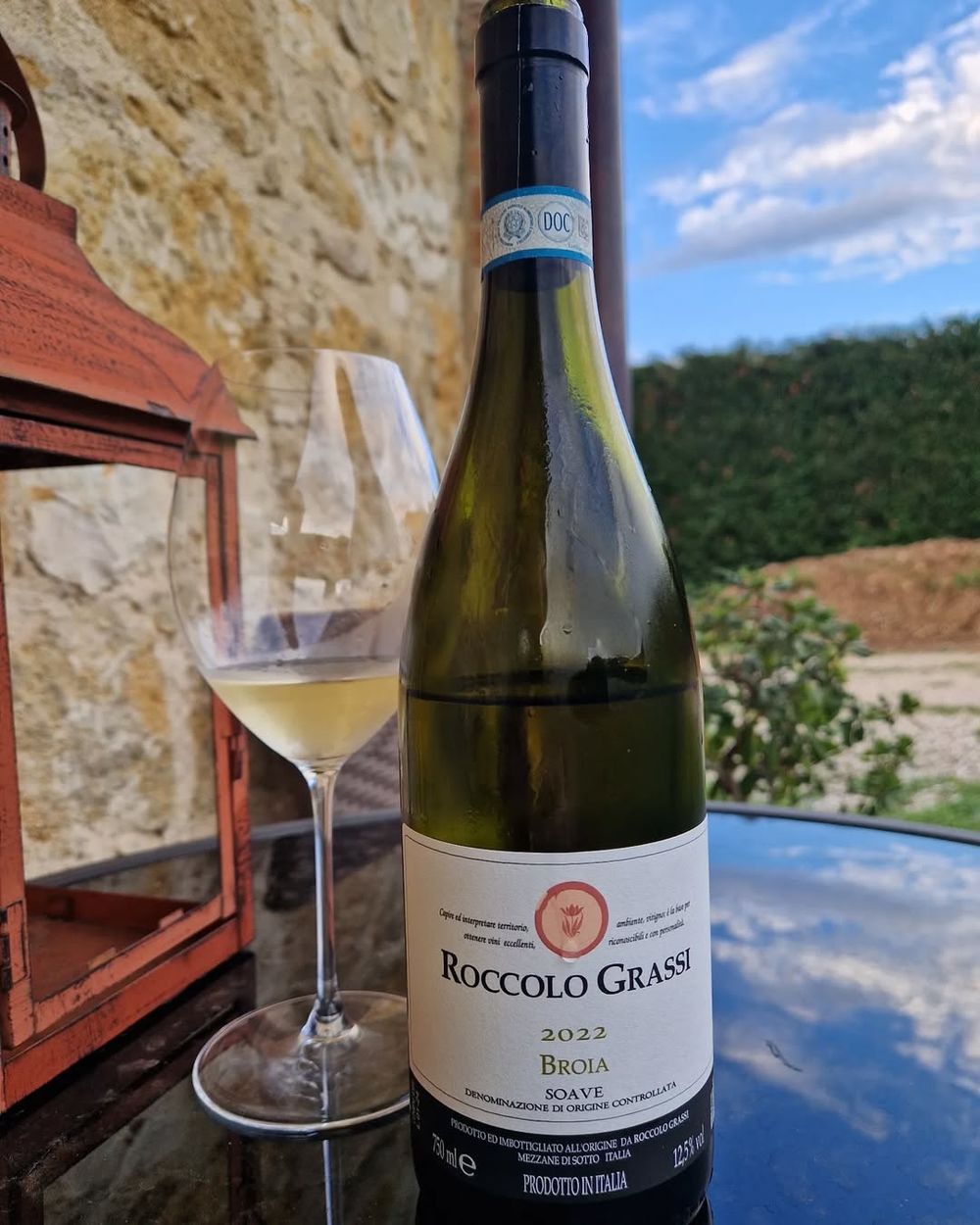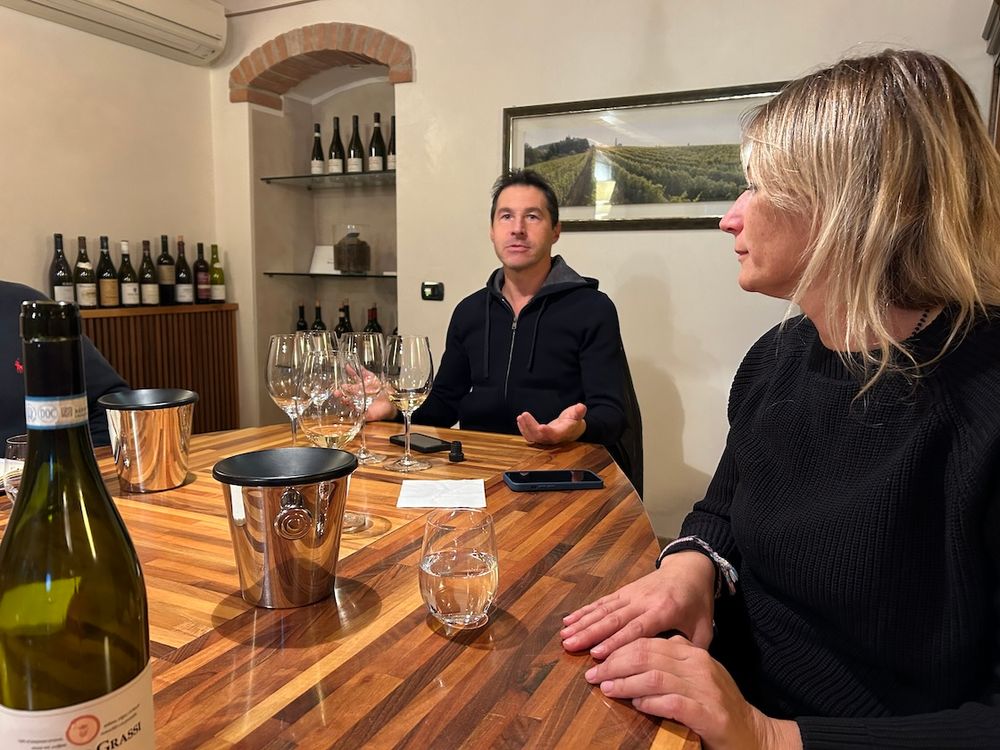Recently, I had the chance to explore Veneto in relation to new wineries taken on by Hallgarten & Novum, immersing myself in the region’s winemaking evolution. Roccolo Grassi stands out for its dedication to elegance and terroir-driven winemaking in the Lessini Hills.
When we visited, in pouring rain, construction was underway to repair the roof, which had collapsed the previous year due to a hailstorm – a harsh reminder of the climate challenges the Sartori family faces.
"Last year’s hail was devastating, and this year, the rain delayed our harvest by weeks," Francesca Sartori said as we watched her nieces arrive home from school, further illustrating the deeply personal nature of their work. Despite these obstacles, the family continues to focus on producing high-quality wines, working tirelessly to ensure that their wines express the character of each vintage and vineyard site.

The Valpolicella wines they make here exemplify Roccolo Grassi’s dedication to terroir.
When Bruno Sartori bought the vineyard in 1996, he was already making wine, though Francesca and Marco’s minds were elsewhere. Marco had just completed his oenology studies when their parents presented him with a choice: “We are hiring a winemaker as we’re going to need help. It’s either going to be you or someone else.” Marco’s career path was thus set. Recognising the vineyard’s unique terroir, the family committed to crafting wines that captured its character, and Roccolo Grassi was born, with the express intention of interpreting and guarding this special terroir.
The south-east-facing vineyards range from 200 metres and above, set on a volcanic-basaltic soil foundation. Trained using the Guyot method, the vines are densely planted at 7,500 per hectare, each yielding around 1.2 kg of fruit.
The Valpolicella wines they make here exemplify Roccolo Grassi’s dedication to terroir. Grown at altitudes up to 310 metres, the wines are vibrant and floral, with polished tannins and a subtle spice. Marco noted that "The altitude helps preserve the acidity, which is essential for keeping wines fresh and structured. We use appassimento for some of the grapes, but we control the process carefully to avoid overpowering the wine with dried fruit flavours."

Only the best grapes undergo appassimento - drying in lofts for two months.
This attention to detail results in a wine that is both concentrated and elegant, reflecting the unique qualities of the vineyard and vintage. Marco also described their process of drying grapes.
"We begin by selecting only the best grapes in the vineyard. Once they are harvested, we dry them in ventilated lofts for about two months, keeping a close eye on humidity levels. The key is to maintain the natural acidity while concentrating the flavours."
This careful process allows the wine to develop its rich, complex profile without losing its balance. The result is a beautifully structured Amarone, with layers of ripe fruit, dried flowers, and a savoury edge, all tied together by its fresh acidity.

On the contrast, their Broia Soave 2022 made from Garganega (100%) grown in calcareous soils, brings a mineral-forward profile with subtle notes of jasmine, red apple, and white pepper. It’s elegant and well-balanced, with a ripe, rounded quality that flows seamlessly into a saline, salty finish, embodying the volcanic power of the terroir.
Marco highlighted the use of cement during fermentation, which enhances the wine’s character by preserving both its freshness and texture. This choice results in a wine that feels broad and silky, with a lingering saline finish that mirrors the vineyard’s unique soil composition. Despite the challenging weather conditions of 2022, their Soave retains its balance and finesse – a true reflection of the family’s dedication. 12.5% abv.
The Valpolicella 2017 impresses with its refined, velvety character – a standout even on a second tasting. Half of the wine is made from fresh grapes, while the other half uses grapes lightly dried on racks for 20 days. Fermentation takes place in stainless steel at controlled temperatures of 25–28°C, with a 20–30-day maceration, during which the cap is regularly pumped over and punched down. After natural malolactic fermentation in wood, each parcel ages for 20 months in Slavonian oak or French barriques, 30% of which are new. The cuvées are then blended and bottle-aged for 10 months, resulting in a balanced Valpolicella blend of Corvina (60%), Corvinone (15%), Rondinella (15%), Croatina (5%), and Oseleta (5%).
Mouth-watering acidity and coating tannins, striking a remarkable balance that underscores the richness and concentration of this Valpolicella. Aromas of peppery tobacco and spice on the nose add complexity, while the palate reveals layers of ripe red fruits subtly balanced with savoury undertones. This rounded and harmonious wine flows into a long, luscious finish, leaving a lasting impression of complexity and elegance. The Sartori siblings’ dedication to expressing their land’s authentic character is evident in each sip. Their use of appassimento is carefully calibrated to add elegance without excessive weight, and their commitment to low yields and minimal intervention lets each vintage’s nuances shine through. 14.5% abv.

Tasting with Marco and Francesca Sartori, Roccolo Grassi
As Marco Sartori explains, “We don’t make wines to follow trends. We make wines that reflect the land and the vintage. That’s what matters to us.”
Climate, palates and styles are changing. It seems to me that, producers are increasingly emphasising structure and the terroir in their wines, shifting from sheer power and extraction to acidity and restraint, making wines that are more approachable, food-friendly, and reflective of their origins.
The wines of Roccolo Grassi are imported and sold in the UK through Hallgarten & Novum which is a commercial partner of The Buyer. To discover more about them click here.
































